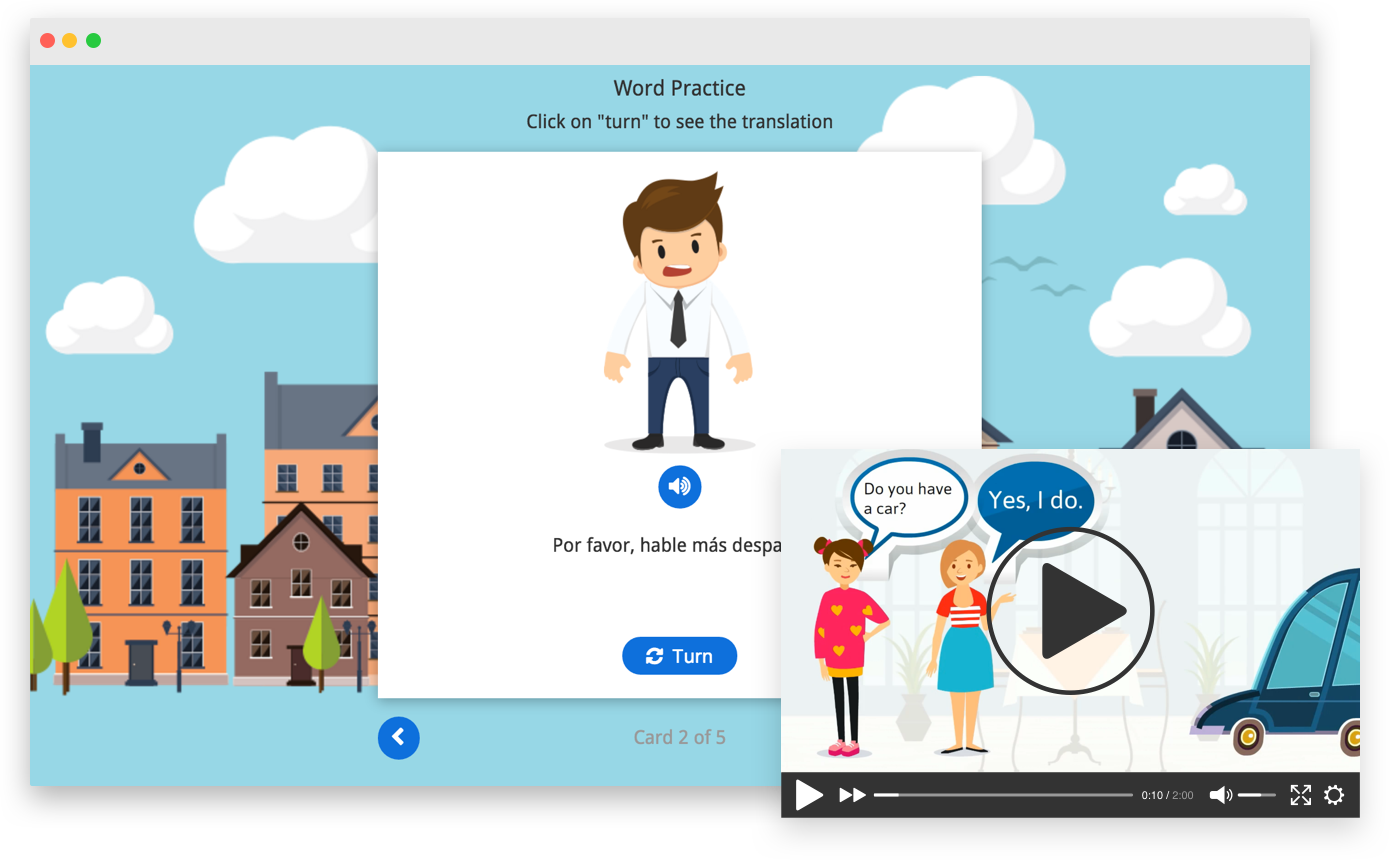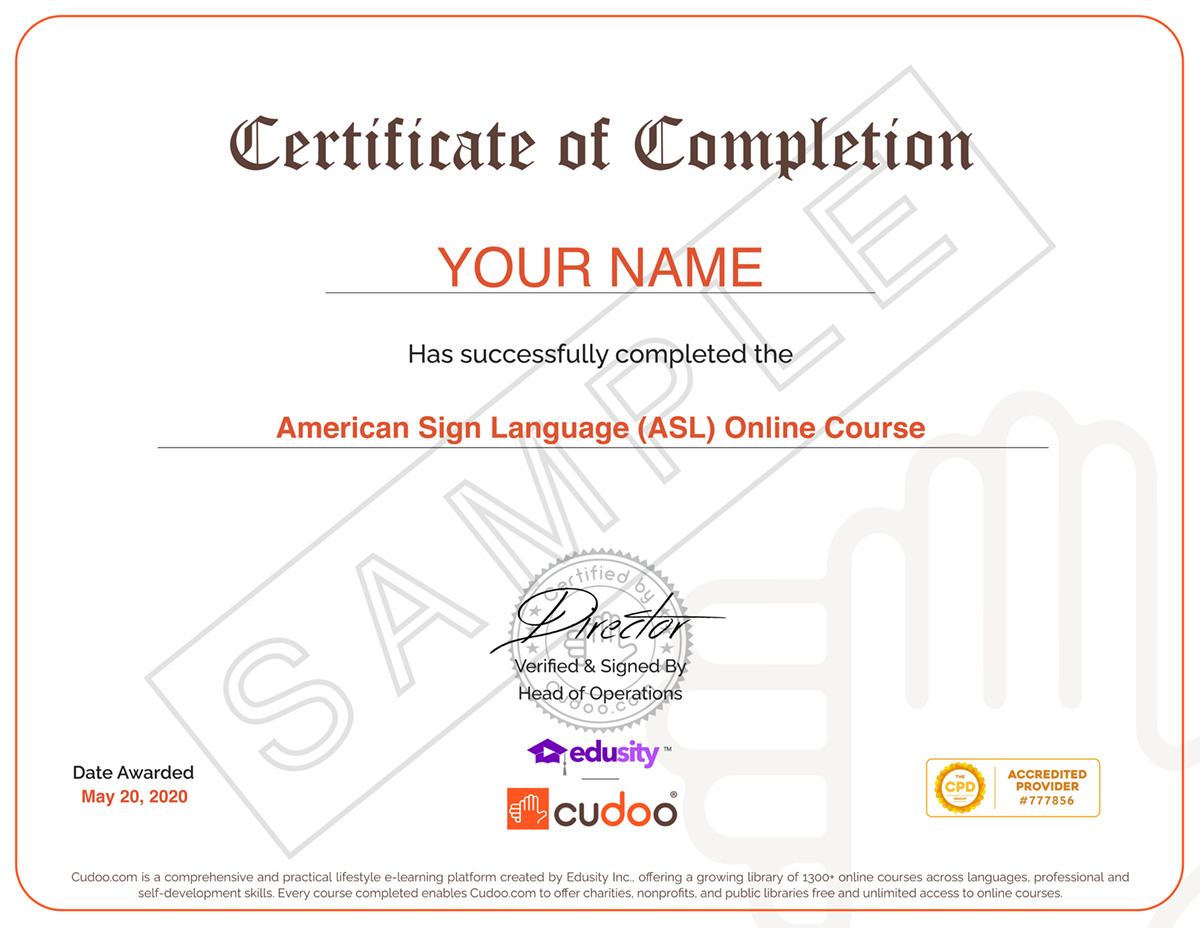Learn Business Swahili Online
Learn Swahili and gain a competitive edge when doing business in East Africa
$14.99
Course Description
This course may be eligible for CEUs*
One of the most exotic languages you can learn as a second language is Swahili. Also known as Kiswahili, Swahili is spoken by at least 5 million as a native language and a whopping 135 million speakers as a second language. This makes Swahili as one of the most in-demand languages to learn. Thankfully, learning Swahili Online is not as difficult as it once used to be.
The initial spread of the language across Africa is owed to the traders from the Arab region that carried the language as far west as Congo and North to Uganda. Later when the Germans colonized parts of Africa, they chose to use Swahili as the administrative language. The Tanganyika and the English standardized the language and helped create the Latin based script it still uses today. Swahili, because of its scale and presence in the continent, is often the default language used by African-Americans to show their connection to their roots and the motherland.
The earliest known writings in Swahili are found from the 1700s, mostly written in the Arabic script.
Culture:
The Swahili culture is driven by Islamic values as the majority of the Swahili speaking people of East Africa are Muslims. This is evident in their family values, social interaction, and societal structures. They love spicy food and soccer and are a big fan of rice and vegetables.
Variations:
Swahili is an amazingly fluid and rich language with many different dialects even within one country. Due to the vastness of the region in which Swahili is spoken, many dialects are difficult to comprehend, even for native speakers.
Why you should learn Business Swahili?
With over 50 million speakers in eastern and central Africa alone, Swahili opens doors to easy communication across the African continent (and wherever Swahili speakers dwell)
If you like to travel and explore new cultures and have set your eyes upon Africa for business or pleasure, learning Swahili will go a long way. It will help you understand the Swahili people and their way of life better and form stronger partnerships when doing business specially in Uganda, Tanzania, and Kenya.
The Swahili Alphabet: Modern-day Swahili is mostly written using the Latin alphabet. However, unlike English, Swahili does not have X and Q in terms of writing as well as sound. There are 24 letters in the Swahili alphabet.
Difficulty Level: Although it has its roots in Arabic, Swahili is one of the easiest languages to learn as an English speaker due to its phonetic nature and ease of understanding when it comes to reading and learning.
Region: Swahili is spoken in but not limited to Tanzania, Burundi, Congo (Kinshasa) Kenya, Mayotte, Mozambique, Oman, Rwanda, Somalia, South Africa, Uganda, UAE, and the USA
Swahili can be written using the Arabic script as well as the Latin script.
Learn Business Swahili, if you are;
- Moving to Africa for a job opportunity
- Planning to do business in Africa
- Required to communicate with other Swahili speakers
- Planning to add a foreign language on your resume
What’s included in the course?
The learn Swahili for Business course is designed especially for individuals wanting to learn business-related communication in Swahili. By the end of this course, you should be able to hold a basic conversation, set up and conduct meetings, do business activities and discussions as well as travel around the region with confidence.
With each course, you get lifetime access you can learn Swahili online easily at your own pace and at your own convenience.
Course Features
- Access via web or mobile
- 20 interactive lessons
- Assessment
- Certification upon completion
After building up your Swahili vocabulary and business phrases, you have the option to continue learning Swahili. Try our Level 1, Level 2, or Level 3 courses to truly perfect the art of this melodic language.
Course Content
On the Phone
On the Phone to a Company
Leaving a Phone Message
Please Call Me Back
Calling Customer Service
Problems on the Phone
What Do You Do?
What Do You Do For A Living?
Introducing Colleagues
Introducing Your Company
Talking About Your Products
Delivery of Products
Payment Terms
Negotiation of the Sale
Contracts and Agreements
Discussing a Reseller Agreement
Discussing a Distribution Agreement
Marketing
Marketing Your Brand
Launching Your Product
Market Research
Advertising Your Product
E-Commerce and Online Marketing
Marketing to Online Customers
Meetings
Setting Up a Meeting Time
Setting Up a Meeting Place
Rearranging Meetings
Preparing for Meetings
Meeting at Trade Shows
Traveling Overseas on Business
At the airport
Taking The Train
At The Hotel
Going By Taxi
Going By Bus or Train
The Hotel Part 1 Check-In
The Hotel Part 2 Rooms
The Hotel Part 3 Questions
The Hotel Part 4 More Questions
The Hotel Part 5 Checkout
Hiring a car
Where is the Nearest Bank?
At The Bank
Online Banking
Stocks and Shares
Internet Access
Working Online
Online Security
Frequently Asked Questions
-
When will I receive my certificate?
Once you have completed your course you can immediately log in to your account and download/print your certificate.
-
How long is my certificate valid for?
Your certificate has lifetime validity. It does not expire.
-
How can I pay?
Our subscriptions are processed by PayPal, Stripe, Apple Pay or Amazon Pay or you can use any Visa, Mastercard or American Express for payments. Cudoo does not collect or store your credit/debit card details.
-
Is my payment secure?
Your payment is totally secure. All payments are processed through a secure HTTPS web page using SSL. Cudoo never collects or stores your credit/debit card or bank details.
-
How do I use Cudoo once I have paid?
Once you have created your account and paid, you will receive a welcome email with a link to your learning platform so you can immediately start learning.
Example Lesson


Example Certificate


 Learn Chichewa Online - Level 2
Learn Chichewa Online - Level 2



You must be logged in to add a review.